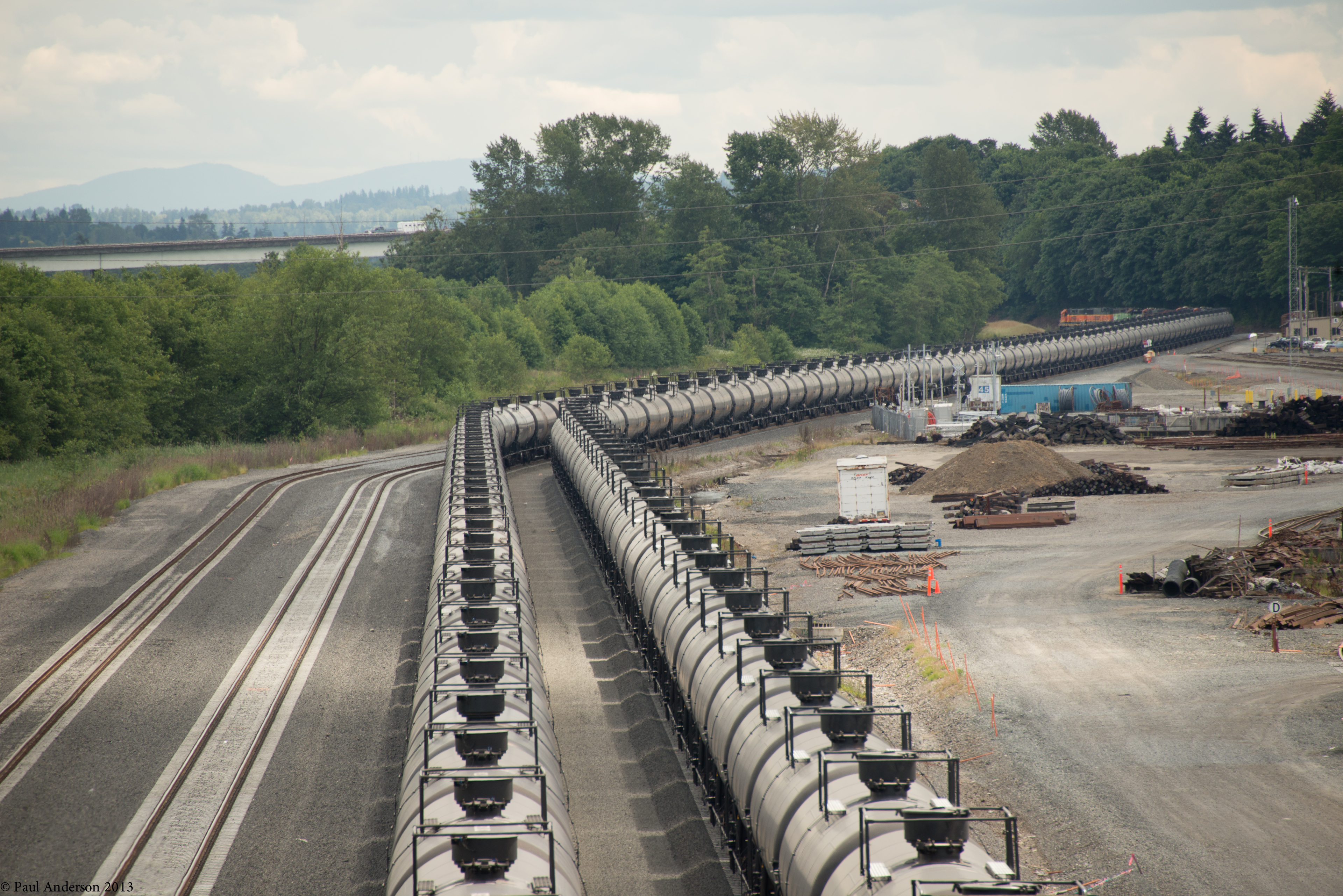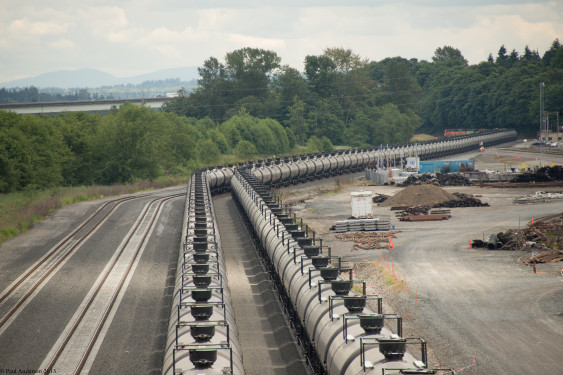Yesterday, EarthJustice announced that it was filing a formal legal petition to compel the Secretary of the US Department of Transportation to issue an Emergency Order within thirty days to ban the use of unsafe legacy DOT-111 tank cars for transporting Bakken and other dangerous crude oils.
In what appears to be a case of “coincidental” timing, industry and federal regulators leaked news the evening before the EarthJustice announcement that they had sketched out an agreement for a three-year (or longer) phase-out of legacy DOT-111s.
The EarthJustice petition references extensive documentation from the National Transportation Safety Board (NTSB) going back to the 1990s that identifies severe flaws in the DOT-111 design specifications. The weaknesses are so profound that they make it almost inevitable that the tank cars will spill their contents upon derailment, even at slow speeds. EarthJustice argues that there is an urgent need to ban the legacy tank cars from transporting explosive crude oil. In 2013 alone:
…more than 1.1 million gallons of crude oil spilled in the U.S., more in one year than the total amount spilled from 1975-2012. More than 4,000 people were evacuated from their homes due to crude-by-rail train explosions in 2013, dwarfing the total number evacuated due to pipeline and rail accidents from 2002-2012…
To which industry spokesperson Tom Simpson replied, “[Legacy DOT-111s]are not rolling time bombs. They are not Pintos on rails,” referring to the older model Ford cars known to catch fire in accidents.
In June, Sightline identified a federal Emergency Order as the mechanism most likely to pop the Bakken bubble.
What happens next? According to Earthjustice’s FAQ document, the Transportation Department is required to respond to the legal petition, either by issuing the requested Emergency Order, issuing some alternative order, or denying it. If the administration fails to take appropriate action promptly, EarthJustice promises to turn to the courts to force DOT to act.











Rich Feldman
Officials, local jurisdictions, and public can send a letter in support of the petition to USDOT to ban legacy DOT-111s. Below is the address and an introductory line. Letter can also be emailed via http://www.dot.gov/contact-us
Background on the petition http://goo.gl/ulPRVY
Anthony Foxx
Secretary of Transportation
U.S. Dep’t of Transportation
1200 New Jersey Ave., SE
Washington, DC 20590
Re: Letter in Support of Petition to the Secretary of Transportation to Issue an Emergency Order Prohibiting the Shipment of Bakken Crude Oil in Unsafe Tank Cars (July 15, 2014).
We are filing this letter in support of the petition filed by Earthjustice on behalf of the Sierra Club and ForestEthics on July 15, 2014, which seeks issuance of an emergency order prohibiting the shipment of Bakken and other highly flammable crude oil in legacy DOT-111 tank cars.
Don Steinke
If Senators Maria Cantwell and Patty Murray can say “We need to get these off the tracks now — why can’t our governor join the chorus?
Ask him:
Jay Inslee